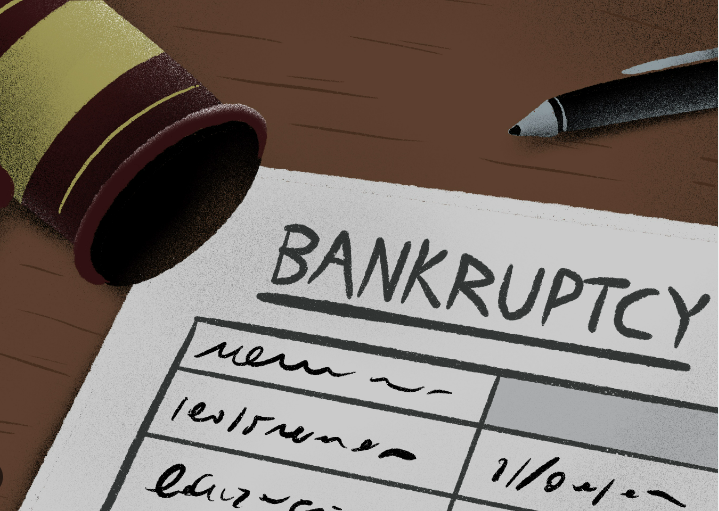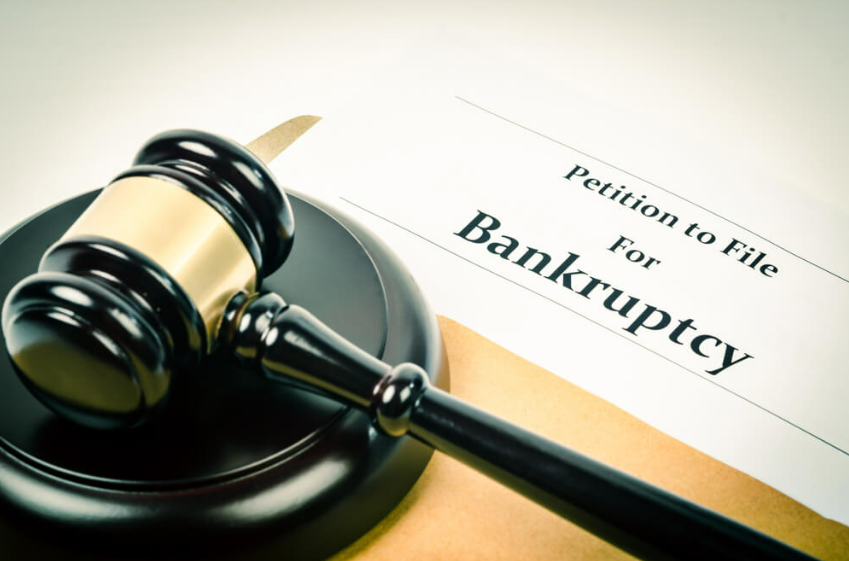How to Know When to File Bankruptcy

Bankruptcy should be considered a last resort after all other options have been exhausted. Depending on the type of bankruptcy you file, you may be able to eliminate all or some of your debt or restructure it to make monthly payments more manageable.
However, bankruptcy has significant consequences. It remains on your credit report for several years, making it difficult to rebuild your credit and obtain new credit in the future.
If you are considering bankruptcy, consult with an attorney. They can advise you on the best time to file and guide you through the necessary steps to complete the process correctly.
When and how to file, and what to expect
The two most common types of bankruptcy are Chapter 7 and Chapter 13. Chapter 7 allows for the elimination of most or all of your debt after your personal property is sold. Chapter 13, on the other hand, reorganizes your debt payments to make them more affordable based on your income.
Both options should be considered only as a last resort. Before filing for bankruptcy, explore other debt relief methods, such as credit counseling. If you decide to proceed with bankruptcy, hiring an attorney can be beneficial. They can guide you through the process and ensure all paperwork is filed correctly.
Filing Chapter 7
Chapter 7 bankruptcy offers a quicker resolution but requires significant sacrifice. Typically completed within four to six months, this option entails selling all nonexempt assets.
To qualify, your income must fall below your state’s median income, passing the means test. Once eligible, you can proceed with filing, which involves submitting documentation on income, debts, and assets. Additionally, recent tax returns and a credit counseling certificate are required. Depending on your circumstances, additional documentation may be necessary.
It’s important to note that not all debt is discharged with Chapter 7. Certain obligations, such as taxes, student loans, secured debt, child support, and alimony, usually cannot be eliminated through bankruptcy.
Filing Chapter 13
Chapter 13 bankruptcy entails a payment plan lasting up to three to five years. Upon filing, the court assumes control of your accounts, determining monthly payments to creditors. An appointed trustee manages these payments on your behalf.
Unlike Chapter 7, Chapter 13 does not require a means test. However, you must have a combined debt total of less than $2.75 million in secured and unsecured debts to qualify. Similar to Chapter 7, you’ll need to provide details on income, debts, and complete a credit counseling certificate.
One advantage of Chapter 13 is that you can retain your home without the risk of foreclosure. While the process is lengthier, it ultimately allows for the discharge of nearly all debt.
How does bankruptcy affect your credit?

Both Chapter 7 and Chapter 13 bankruptcies can substantially lower your credit score. For those starting with a credit score of 700 or higher, it’s not uncommon to experience point losses of 200 or more. If your score is 680 or less, you may face a decrease of 130 to 150 points.
To rebuild your score, focus on timely payments of new bills and monitor your credit utilization carefully for any remaining lines of credit.
Disadvantages of filing for bankruptcy
The repercussions of bankruptcy extend beyond just your credit score, which can take a considerable amount of time to rehabilitate, regardless of the method you opt for:
- It might raise concerns for prospective landlords and employers.
- It could affect your insurance premiums.
- Bankruptcy records linger on your credit report for seven to 10 years.
- Moreover, there are restrictions on filing. Chapter 13 can only be undertaken once every two years, and Chapter 7 once every eight years.
Advantages of filing for bankruptcy
While there are certainly credit risks associated with filing for bankruptcy, this process can also serve as a lifeline:
- It wipes out or discharges numerous unsecured debts.
- Chapter 13 establishes a more manageable monthly payment plan.
- It grants you the financial autonomy to start saving.
- Over time, it may enhance your credit and overall financial situation.
Bankruptcy alternatives

Bankruptcy should only be considered when all other options have been exhausted, and exploring alternatives like credit counseling is often advisable before filing. Additionally, seeking assistance from reputable debt relief companies can provide valuable support in managing debt before considering bankruptcy.
Contact a credit counselor
When initiating Chapter 7 or Chapter 13 bankruptcy proceedings, attending credit counseling is a requisite step. A credit counselor will outline your options and assist in crafting a viable plan. The National Foundation for Credit Counseling is a reliable resource for locating accredited nonprofit agencies.
Alternatively, even if you opt out of formal credit counseling, a credit counselor can devise a personalized debt management plan for you. Analogous to Chapter 13, a debt management plan offers a structured approach to settling unsecured debt over a period of three to five years.
Notably, a debt management plan typically yields a milder impact on your credit score compared to bankruptcy, and you’ll benefit from ongoing guidance from a certified professional. This support can prove invaluable for modifying payments, engaging in negotiations with creditors, or addressing any challenges in meeting payment obligations.
Tighten your budget
To ensure clarity, assess your outstanding debts alongside your present income. Crafting a minimalist budget might aid in reprioritizing expenses, potentially freeing up funds to tackle your debt.
If your financial flexibility is limited, exploring options like selling belongings or seeking additional sources of income may be necessary. While these measures may not align with your ideal scenario, they can serve as temporary solutions to bridge financial gaps as you navigate through credit counseling.
Ask your creditors for relief

Contact your creditors to explore the possibility of renegotiating terms or settling for a reduced amount. While not all creditors may agree to these terms, it’s essential to communicate clearly about your repayment capabilities. Even in cases of default, you might negotiate to evade collections or defer payments.
Bankruptcy’s potential to discharge debts may prompt creditors to consider settling for less to secure payment. However, the feasibility of this depends on your financial circumstances and the creditor’s policies.
Debt consolidation
Certain debt relief firms provide debt consolidation services, but you can also pursue a debt consolidation loan independently. If bankruptcy seems imminent, seeking a debt consolidation loan tailored for individuals with poor credit may be necessary.
Prior to proceeding, it’s crucial to compare various debt consolidation loan rates. Additionally, ensure that the repayment plan is manageable; otherwise, you might simply postpone the need for more extensive debt relief measures.
In Conclusion
Bankruptcy should be considered as a final option, yet it can offer relief. Chapter 7, contingent upon passing a means test, discharges a majority of your debt and could lead to a credit score recovery within a few years. On the other hand, Chapter 13 facilitates debt restructuring for more manageable payments, albeit over a longer duration.
Engaging an attorney when filing is advisable to navigate the process smoothly and prevent costly errors.



